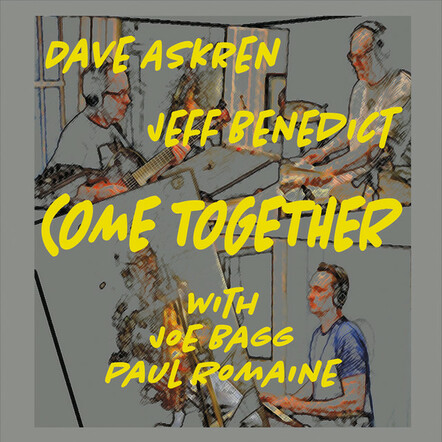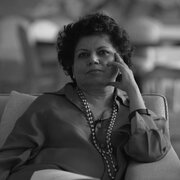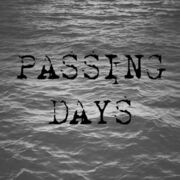New York, NY (Top40 Charts) Talk about musical pedigree, and one of the names that comes to mind almost immediately is Dave Askren. Previous albums have included a Re: Bill Evans, a guitar trio tribute to the iconic pianist, forays into Latin jazz, Rhubumba and Trio Nuevo +, and appearances in multiple settings such as big band and even a saxophone quartet. While his musical family tree may seem to have begun in the Askren home in Dayton, Ohio, his roots lineage — roots, branches and all — may be traced back through the "Era of Fusion," and if that sounds as if the epithet suggests roots and branches as broad as jazz-blues, or rhythmn-blues, rock-and-roll, or jazz-rock, it is because Askren grew up in the shade of that enormous ancestral tree. At any given time, he might have been grooving to Tony Williams' Lifetime, The Crusaders, Mahavishnu, or Chick Corea's early bands. All of that should now make it easy to guess that Dave Askren can trace his ancestry all the way back to Miles Davis, starting with Miles' own fusion period - like Bitches Brew or
Jack Johnson - soon yielding to the classic 50's-60's Davis Quintets, which is what informs the unique, horn-like sound and rich harmony of Askren's guitar.
It wasn't always that way, however. The musician in Askren started life as the son of a church organist/piano teacher, who also studied and played clarinet and saxophone. It was at 14 years of age that Askren hung up his reeds and horns, and took his foot off the piano pedal and with guitar in hand, stomped on a different set of pedals. The tipping point, according to Askren folklore, was a couple of small-club concerts: one where
George Benson performed and the other was one featuring Pat Martino. However, everything came to fruition when Dave Askren entered Berklee College of Music,
Boston — first as a student and later as a teacher. Further, the
Boston experience gave Askren the opportunity to tutelage with Charlie Banacos and to be influenced by the guiding Jerry Bergonzi. While at Berklee, he also came under the spell of Rakalam
Bob Moses and guitar guru Mick Goodrick. The rest is history of a different sort - where Dave Askren paid his dues with a very different roster of musicians, including LaToya Jackson, Marilyn McCoo,
Little Anthony, The Coasters and, of course, his elder soul— brother, Jeff Benedict.
Jeff Benedict is the epitome of a quiet revolutionary of a saxophone player. To that extent, it is the quietest of revolutionaries who make the loudest, most glorious "noise," Jeff Benedict has much to say, no matter what saxophone he is playing. Invariably, Benedict lives by the principle that less is more, by which he not only makes each note he plays sound extra special, but by which he also tells a gripping narrative in a few, short pages: the kind that have little black — solid or hollow dots that leap off the page when Benedict plays his horn. Turning professional at the tender age of 14, Benedict's credits include performances with: Dave Brubeck, Phil Woods, Gary Burton and Toshiko Akiyoshi. Benedict has been awarded four DownBeat "DeeBee Awards" for Best Instrumental Jazz Soloist, Best Original Composition and Best Classical Chamber Music.
What makes Jeff Benedict even more of a rare bird is that he is at home playing classical as well as jazz music on the saxophone, and, for the record, is also a member of the
Bobby Rodriguez Latin Jazz Orchestra. Moreover, his sight-reading skills are so finely honed that he has been asked to, and graciously interpreted, and performed, many new works specially written for the saxophone, which he continues to do with the Orion Saxophone Quartet, a Los Angeles based contemporary music ensemble which he founded. Benedict continues to set one foot in academia, currently the Professor of
Music at California State, Los Angeles, with the other foot firmly planted in performance on stage and in the studio. He has led small ensembles on two dates for the Resurgent
Music Label - Castle Creek Shuffle and Standard Fare; a latin-jazz group on Rhubumba for Sea Breeze Records; and the Jeff Benedict Big Big Band on Holmes for Tapestry Records. He and Dave Askren co-led a quartet to create It's All About the Groove on Daway Music.
One happily grooving quartet always deserves another, and this one includes drummer Paul Romaine, a childhood friend and musical partner in crime of Jeff 's and DownBeat critic's choice of talent deserving of wider recognition. Also on the recording is Hammond B3 organist Joe Bagg, who seduced Dave Askren and Jeff Benedict with a strategically placed Hammond B3 in the studio where It's All About The Groove was being recorded four years ago.
Dave Askren: guitar
Jeff Benedict: saxophone
Joe Bagg: organ
Paul Romain: drums
Lennon and McCartney's "
Come Together" and Ann Ronnell's "Willow Weep for Me" might seem like odd bedfellows. Brought together by this quartet of Dave Askren and Jeff Benedict with Joe Bagg and Paul Romaine in this profound performance, however, they prove mutually illuminating. The starting point of the program is "Cheese Grits," a fluid variation on a Jimmy Smith-like Hammond organ theme melded into the kind of rumbling, hard-driving scorcher that Stanley Turrentine would also rock. It is a fitting opener to this soulful release. It is also a wickedly beautiful way to lead into the title track of the album, an imaginative 7/8 version of the iconic
Beatles piece.
Clearly nothing can go wrong after that. Both Dave Askren and Jeff Benedict are almost unanimous in their gravitation towards a recast for Miles Davis' "Nardis," which follows, in such a manner as to recall the kind of groove that
John Scofield and Larry Goldings might bring to it, if they had played the song that is. Askren and Benedict also reveal themselves to be artists of the first order, as does Joe Bagg and Paul Romaine. "Moment's Notice," broadens out from the kind of groove that
John Coltrane might have created together with Elvin Jones, but make no mistake, the geniuses here are Askren and Benedict, Bagg and Romaine. Both "Hear This" and "On It!" seem to be cut from the same magnificent diaphanous fabric, only from different ends of it. The angular, clipped rhythmic dimension is driven by their composer, Dave Askren.
As always, Jeff Benedict and Dave Askren's respective performances are gorgeous: the former being lustrous and precise, while the latter is feather-light and rhapsodic. Nowhere is this more on display, than on "Pineapple Head," a kind of 'Lucy In The Sky with Diamonds-goescalypso' vibe. The true gem in the mix is "Willow Weep For Me" it is here, that each of the two men - together with Bagg and Romaine, dig deep into their individual emotive expressions, bringing to each melodic phrase a ceaseless variety of soft dynamics and equally graceful potency - complete with a quote from Blood, Sweat and Tears, even before the emotional fireworks start.
So how do you end a perfect performance? Try a deeply interiorized reading of
Jerome Richardson's "Groove Merchant." The monumental melodic and harmonic gift that both Benedict and Askren bring to this piece is wonderfully complemented here by Bagg's vaulting over the harmony and Romaine whipping up a storm rhythmically. But as a certain
William "Count" Basie once ordered his band to go "one more time", Askren and Benedict take the quartet into a playful version of "Deed I Bu," a rollicking contrafact of "Deed I Do," composed by Paul Romaine, to pay homage to his ever-talented African gray parrot, in an inimitable voice of the Bird (no, not Charlie Parker, but a Bird, nevertheless). I think the salt of an album, is when musicians can lay it out and burn, but also serve it with not taking themselves too seriously, and serving up great fun. You can hear this in every note on, Come Together. Consummate players, having a grand time making music together.
























